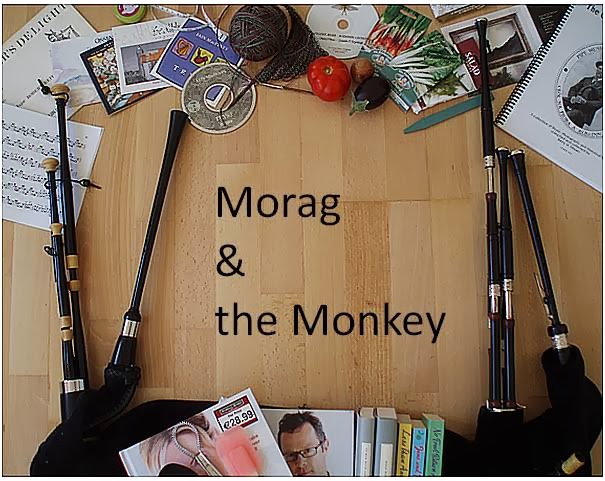When I listen to a CD a lot the tracks I am most likely to
skip long before I move on to a new CD are the songs, especially the “comic”
ones.
Like a lot of people I suppose, I’ve always in the past
tended to prefer songs to tunes, or instrumentals. The world of pop is
certainly geared towards songs: it’s what many of us are brought up on. I’m
also a fan of classical music, some of which (opera) includes vocals, and much
of which does not (Beethoven’s 9th being a bit of an exception to
the rule), which is perhaps why moving to tunes hasn’t been such a hardship.
I think it is this tendency for popular music to be songs
rather than tunes that means people prefer songs. I suppose anyone can warble a
song, and provided the words are roughly there, even if you’ve little idea of
the melody, people will recognise it. The human voice is also compelling to us:
we can pick voices out of noise in the same way that we can detect faces in a
muddled background.
As an Eng Lit graduate I’ve always taken more interest in
words than music, but a lot of songs don’t really have words that are worth
taking much notice of. For lots of popular songs the bit that sticks in my mind
is often a chorus, or a brief, and oft repeated refrain. I can call to mind
Whitney Houston, for example, singing that she will always love
you-oo-oooo-oo-ou, but couldn’t hum the rest of it or tell you what any of the
other lyrics were.
And yet I would generally think that songs are easier to
remember than tunes. Songs normally have some sort of narrative and we can see
that, for instance, Lord Barnard can’t kill little Matty until he has found him
with his lady, which can only happen after the page has tipped him off, which
can only happen after the page has seen little Matty at church. Some folk
songs, through many re-tellings, get a little garbled (like Aye Waukin' O where
we are told in quick succession that he dreams when he sleeps, he wakes up
feeling bad, and that he never sleeps at all). Words are still easier to string
together, to guess the relative order or guess at words we’ve forgotten,
because we know the convention of forward momentum in storytelling, and because
we know the rudiments, at least, of grammar and word order.
Possibly this is just as easy for those who know enough
about musical theory. As I get to know more tunes I am learning the
different possible structures and find it easier to hazard a guess at what
might come next in general terms: a repeat or a variation or a change.
One of the songs I don't skip on repeated listenings to Rare is Bonnie Earl O Moray, which is set to a lovely Swedish tune. Like many of Jock Tamson’s songs it is interestingly arranged. They tend to avoid the instrumental intro,
verse(s) and chorus, instrumental, last verse (or repeat first or last verse)
standard. This has a big chunk of tune, all the singing, another big chunk of
tune, then a repeat of the first two lines of the song only.
I'm also (and this post I wrote ages ago and have left to fester in drafts) listening a lot to Julie Fowlis' Gach Sgeul, and with those the tunes drop in to my memory but the words, being Gaelic, do not. Yet I still find that I am trying to hear the words, or at least, the sounds that the words make, in order to help me think how the tune goes. There is clearly something in my brain that is still giving preference to words, to the human voice, over music, still preferring the song to the tune.

No comments:
Post a Comment